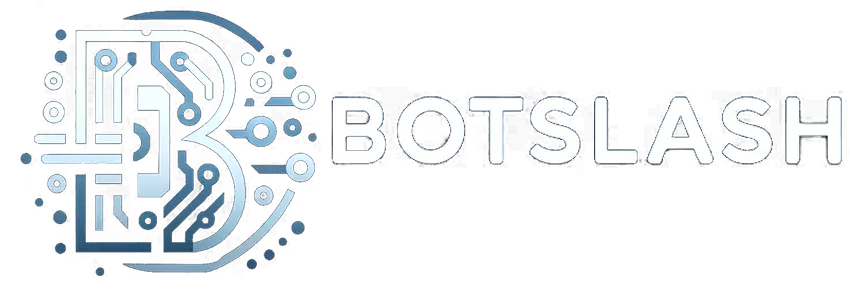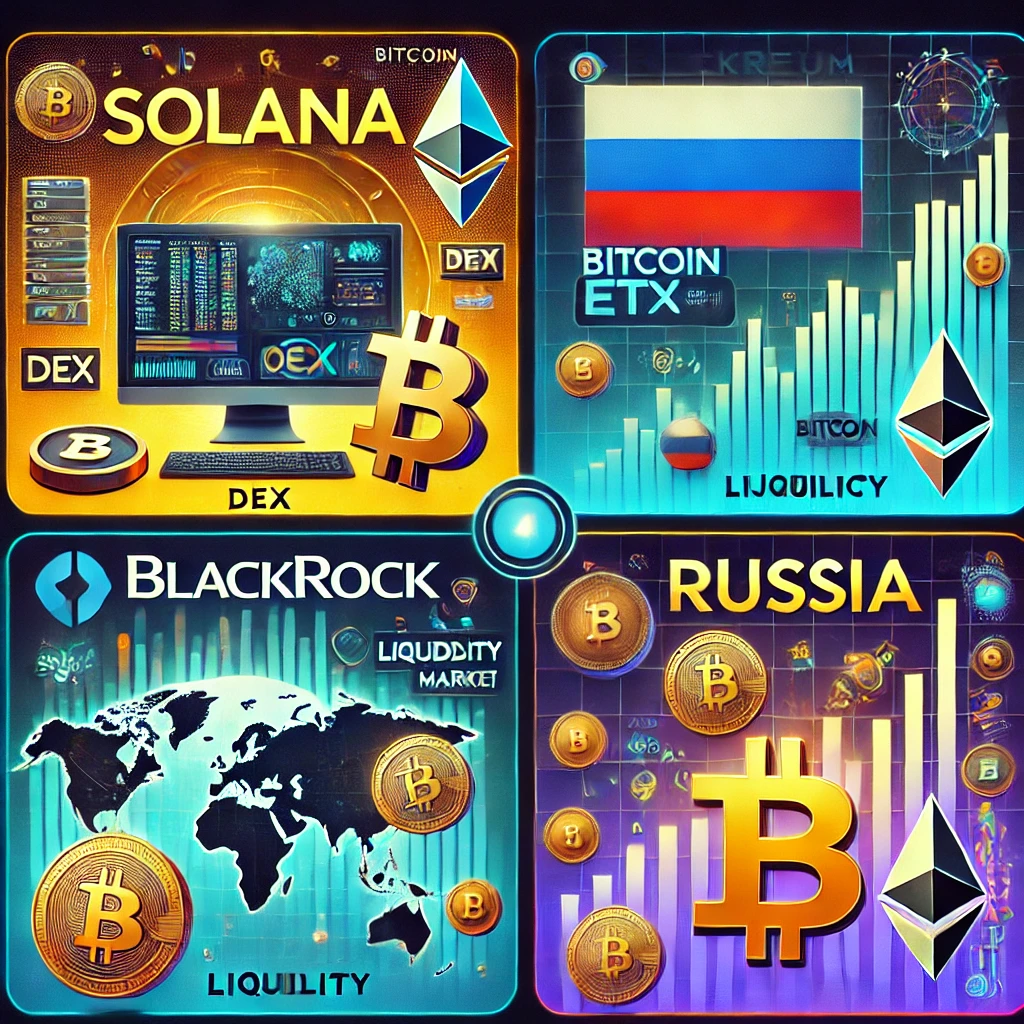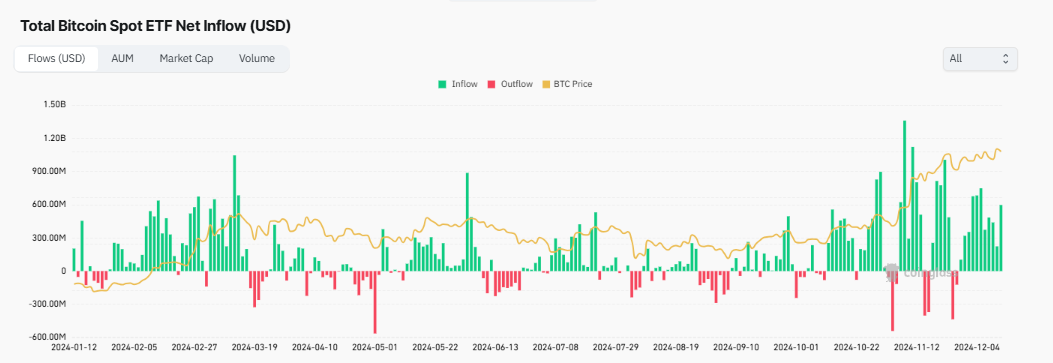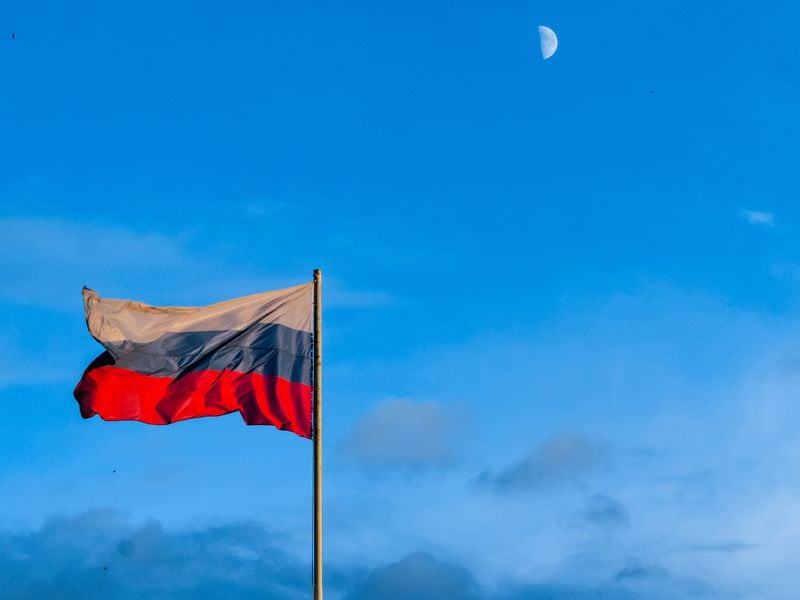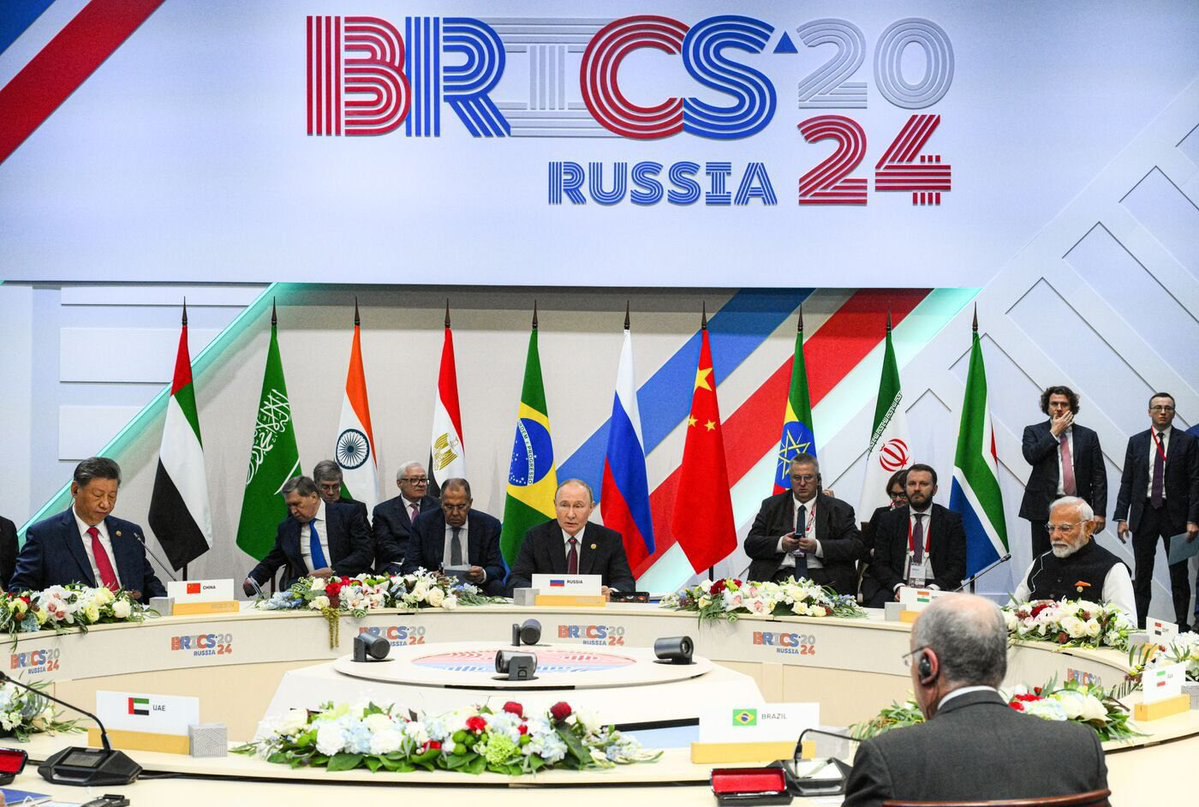Explore the latest in the cryptocurrency world with four major highlights reshaping the digital finance landscape. Solana sets a new standard with Ranger Finance’s perpetual DEX aggregator, streamlining trading experiences and boosting DeFi liquidity. BlackRock, meanwhile, sharpens its focus on Bitcoin and Ethereum ETFs, reinforcing confidence in these dominant digital assets and shaping institutional investment trends.
Russia takes bold steps towards crypto adoption with initiatives like the legalization of Bitcoin for international trade and a proposed national Bitcoin reserve, signaling its strategic pivot to decentralized financial tools. Chainlink rounds off the major highlights with a record-breaking surge in futures open interest, reflecting heightened market confidence and increased trader activity. These pivotal developments mark significant strides in the global adoption and evolution of cryptocurrencies.
1. Ranger Finance Targets Crypto Perps Traders of Size on Solana
Ranger Finance has introduced the first perpetual DEX aggregator on the Solana blockchain, designed to address liquidity challenges and meet the needs of high-volume traders. By consolidating liquidity from multiple decentralized exchanges (DEXs), the platform offers improved pricing, reduced slippage, and advanced features like smart order routing and real-time data insights. This innovation not only enhances the trading experience for experienced users but also simplifies access to DeFi markets for newcomers.
The platform is part of Solana’s broader effort to establish itself as a hub for perpetual futures trading. With its high-speed transactions and low fees, Solana provides a competitive environment for such ventures. Ranger Finance’s launch could pave the way for greater adoption of decentralized trading strategies, enhancing Solana’s position in the DeFi ecosystem.
Impact on Crypto:
Ranger Finance’s introduction is expected to boost liquidity and trading volumes within Solana’s DeFi ecosystem. By attracting institutional and retail traders, it strengthens Solana’s market presence and sets the stage for similar innovations across other blockchain platforms.
2. Why is BlackRock Holding Back on Crypto ETFs?
BlackRock’s decision to concentrate on Bitcoin and Ethereum ETFs while holding back on altcoin-based ETFs reflects its strategic approach to cryptocurrency investment. With Bitcoin and Ethereum dominating market capitalization and exhibiting greater stability, BlackRock aims to expand the reach of its flagship products, IBIT and ETHA, rather than diversifying into riskier altcoin markets.
This strategy aligns with BlackRock’s conservative investment philosophy, emphasizing assets with proven resilience and institutional appeal. While altcoin ETFs face challenges such as regulatory uncertainties and lower market share, BlackRock’s focused approach has enabled its Bitcoin ETF to surpass several regional ETFs in Europe in terms of assets under management.
Impact on Crypto:
BlackRock’s selective focus on Bitcoin and Ethereum reinforces their dominance in the crypto market, encouraging greater institutional participation. This approach enhances liquidity and boosts investor confidence in these leading digital assets while signaling caution for altcoin markets.
3. Russia’s Strategic Crypto Shift: Bitcoin Reserve, Trade Legalization, and Market Evolution
Russia has taken a decisive turn toward integrating cryptocurrency into its financial framework, signaling a strategic pivot in response to international sanctions. The proposal for a national Bitcoin reserve, championed by State Duma Deputy Anton Tkachev, reflects Russia’s efforts to leverage Bitcoin’s decentralized nature to enhance financial stability and reduce dependency on traditional monetary systems controlled by Western powers. This reserve is seen as a critical tool for mitigating the economic impacts of global sanctions and fostering greater resilience in the face of geopolitical pressures.
Moreover, Russia’s recent legalization of Bitcoin for international trade has further underscored its commitment to digital assets. Effective September 2024, Russian businesses can utilize Bitcoin for cross-border transactions, providing a critical alternative for international payments amid the country’s exclusion from the SWIFT network. By officially recognizing Bitcoin as a foreign currency, Russia has taken a bold step to facilitate trade and circumvent economic blockades, marking a significant milestone in the global acceptance of cryptocurrencies.
Russia’s participation in the 2024 BRICS Summit further illustrates its intent to align with other emerging economies in leveraging digital currencies. Discussions centered around using Bitcoin as a trade settlement tool within the BRICS bloc highlight a collaborative approach to reducing reliance on Western-dominated financial institutions. Meanwhile, Binance’s exit from Russia, marked by the transfer of operations to CommEX, represents a broader shift in the crypto landscape, emphasizing regulatory adjustments and Russia’s evolving stance on digital asset management.
Impact on Crypto:
Russia’s adoption of Bitcoin for national reserves and international trade sets a significant precedent for the global financial ecosystem. This move not only increases the demand for Bitcoin but also reinforces its utility as a strategic economic tool. Other nations facing similar economic sanctions may be inspired to explore cryptocurrencies, potentially accelerating global adoption and further legitimizing digital assets in traditional financial systems. These developments also highlight the critical role of decentralized technologies in reshaping international trade and financial resilience.
4. LINK Futures Open Interest Reaches Record High
Chainlink (LINK) futures have seen a dramatic rise in open interest, hitting an all-time high of $741.15 million. This surge indicates increased trader engagement and growing confidence in Chainlink’s market prospects. Historically, such spikes in open interest often signal upcoming price volatility and heightened trading activity.
The current trend in LINK futures suggests that investors are betting on significant price movements, driven by Chainlink’s expanding ecosystem and strategic partnerships. With increased liquidity and attention in the futures market, LINK could be poised for notable gains in the near future.
Impact on Crypto:
The record-high open interest in LINK futures reflects heightened market activity and optimism, which could boost Chainlink’s price and overall market capitalization. This trend also highlights the growing maturity of the crypto derivatives market, offering more sophisticated investment opportunities for traders.
Key Takeaways
- Ranger Finance Revolutionizes Solana Trading:
Ranger Finance’s launch of a perpetual DEX aggregator addresses Solana’s liquidity challenges, enhancing the trading experience for both high-volume and casual traders. This move strengthens Solana’s DeFi ecosystem and positions it as a leading blockchain for perpetual futures trading. - BlackRock’s Strategic Focus on Bitcoin and Ethereum:
By concentrating on Bitcoin and Ethereum ETFs, BlackRock underscores its confidence in these established digital assets. This conservative approach bolsters institutional participation while leaving altcoin markets facing regulatory and market uncertainties. - Russia’s Bold Bitcoin Adoption:
Russia’s initiatives to integrate Bitcoin into its financial system, including the legalization of Bitcoin for international trade, signal a strategic embrace of crypto to counter sanctions. This could influence global demand and set a precedent for other nations to follow. - Chainlink Futures Signal Market Optimism:
The record-high open interest in Chainlink (LINK) futures highlights strong market engagement and potential for significant price movements. This development showcases the growing maturity and opportunities within the crypto derivatives market.
